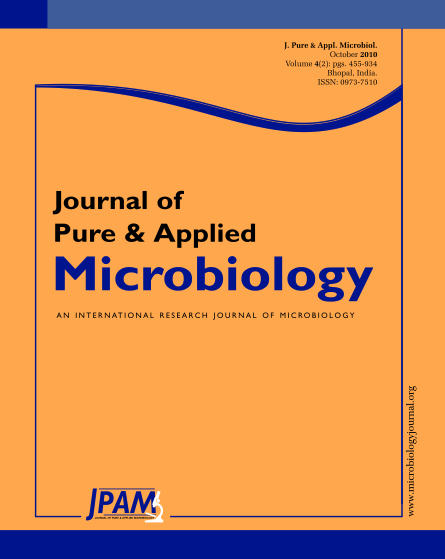Colonies of Bacillus sp isolated from the midgut of Anopheles barbirostris (Diptera: Culicidae) were circular, white, flat and undulate. The isolate tolerated up to 400C showing its growth on nutrient agar and Tryptone soya agar but unable to grow on Mac Conkey and Eosin-methylene blue agar. Organisms (ranging from 1.76-2.3 µm in length and 0.53-0.64 µm in diameter) and diameter from were positive for Gram stain, spore and crystal staining. The isolate showed its salt-tolerant nature and failed to grow anaerobically. Bacteria didn’t produce acid and gas from carbon source. The bacteria were positive for protease and lipase activities. Organisms were found to sensitive to Kanamycin (30 µg/ml), Ofloxacin (5 µg/ml), Doxycycline(10µg/ml), Gatifloxacin(10µg/ml), Gentamycin(10µg/ml), Tetracycline(30µg/ml), Ciprofloxacin(5µg/ml), Nalidixicacid(30µg/ml), Rifampicin(5 µg/ml), Streptomycin(10 µg/ml), Levofloxacin(5 µg/ml) and Vancomycin(30 ìg/ml),but found resistant to Ampicillin((10µg/ml).The antibiotic treated larvae without this midgut flora showed delayed development to become adult rather than those harbouring in its midgut.
Anopheles barbirostris, Bacillus sp, symbiotic association
© The Author(s) 2010. Open Access. This article is distributed under the terms of the Creative Commons Attribution 4.0 International License which permits unrestricted use, sharing, distribution, and reproduction in any medium, provided you give appropriate credit to the original author(s) and the source, provide a link to the Creative Commons license, and indicate if changes were made.


